Agora is professional reading journal for History teachers. Each issue provides perspectives on a particular theme, from curriculum-focused content to pedagogical practice, along with teaching strategies, classroom activities and educational resources addressing the broader History curriculum.
Reflection
Editorial
Nefertiti: New Perspectives from New Data • New evidence about Nefertiti has altered perspectives and theories surrounding this Queen, and possible Pharaoh, from ancient Egypt.
New Perspectives on the Causes and Consequences of the French Revolution • The past decade has seen further evidence of the ways in which the French Revolution continues to inspire research and reinterpretation, particularly on the consequences of 1789.
Teaching the Russian Revolution in Times of War • Russia’s full-scale invasion of Ukraine has encouraged historians to explore non-Russian archives, amplifying the voices and experiences at the peripheries of the Russian Revolution.
Was the American Revolution a Civil War? • The intense partisanship of America’s current political culture has led historians to question the traditional conception of the revolution as a unifying event guided by a common ideology or shared enemy.
Reform Aversion and the Death of the Roman Republic • The demise of the Roman Republic arguably fits the circumstances identified in recent scholarship examining how democracies can be taken over by authoritarians.
The Great Divergence Debate • The ‘Great Divergence’ debate forces us to rethink the origins of Europe’s modern economic growth and its relationship with colonial expansion overseas.
China’s Foreign Emergence under Mao • A new wave of historiography is identifying Mao’s final years as the period when China retreated from the isolation of the Cultural Revolution and began opening up to the capitalist West.
Beginning a New Century of Women’s Suffrage History? • New scholarship is documenting the suffragists’ place in Australia’s commemorative landscapes, the promise and partiality of digital archives, and reconsidering the voting restrictions that complicate narratives of ‘universal’ suffrage in the twentieth century.
History Teachers and the Future of Australian Democracy • Democracy is under attack. Could mythologising its history save it?
‘We Won, You Lost, Get Over It!’: Moving Beyond Truth-telling to Justice in the Australian History Classroom • We need to consider how History teaching can move beyond truth-telling towards the context of justice.
Historians Are Becoming Characters in their Historical Accounts • There is a growing trend among historians to insert personal autobiographical material into their historical narratives—in short, to walk around in their own stories.
The Biggest Fallacies in Education • Some common beliefs in educational practice do not stand up to scrutiny.
Making Thinking Routine in the VCE History Classroom • Thinking and revision routines can encourage active listening, idea generation and connection-making in the History classroom.
The South Australian Frontier and its Legacies • A new website documents the nature, extent and duration of violent interactions between Aboriginal people and colonists.
Kritikos
Agora
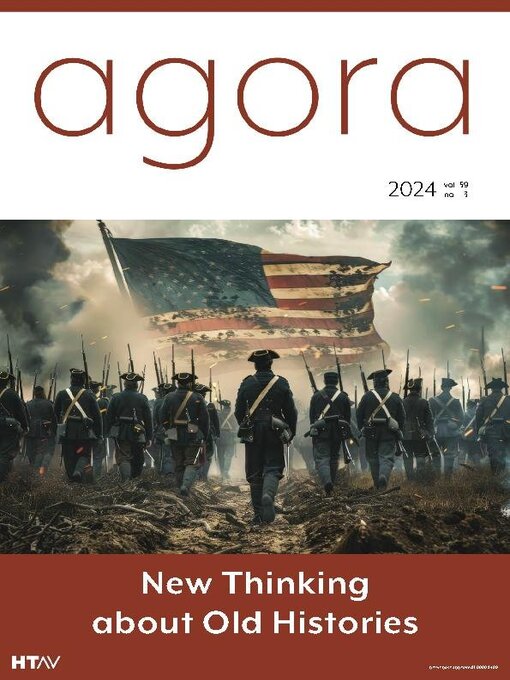
 Vol 59 No 3 2024
Vol 59 No 3 2024
 Vol 59 No 2 2024
Vol 59 No 2 2024
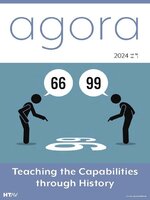 Vol 59 No 1 2024
Vol 59 No 1 2024
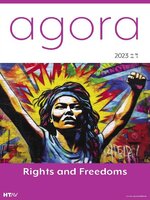 Vol. 58 no. 3 2023
Vol. 58 no. 3 2023
 Vol. 58 no. 2 2023
Vol. 58 no. 2 2023
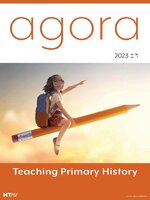 Vol. 58 no. 1 2023
Vol. 58 no. 1 2023
 Vol. 57 no. 3 2022
Vol. 57 no. 3 2022
 Vol. 57 no. 2 2022
Vol. 57 no. 2 2022
 Vol. 57 no. 1 2022
Vol. 57 no. 1 2022
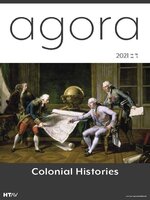 Vol. 56 no. 3 2021
Vol. 56 no. 3 2021
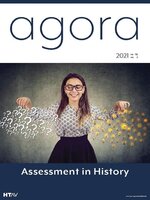 Vol. 56 no. 2 2021
Vol. 56 no. 2 2021
 Vol. 56 no. 1 2021
Vol. 56 no. 1 2021
